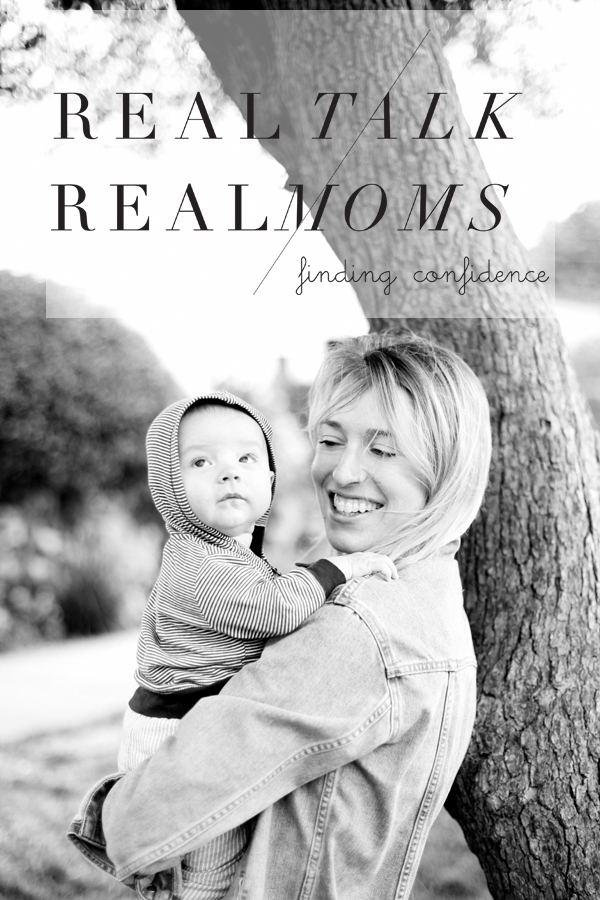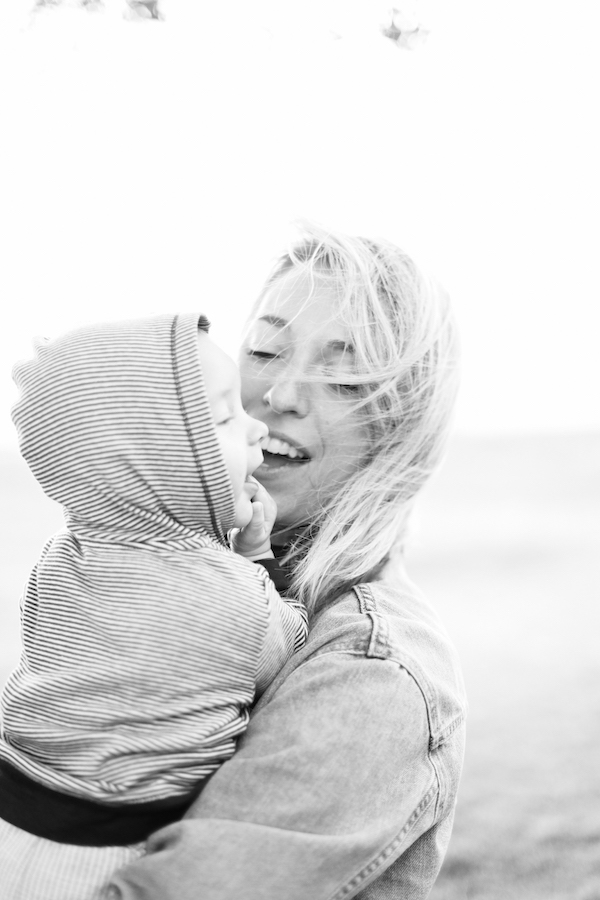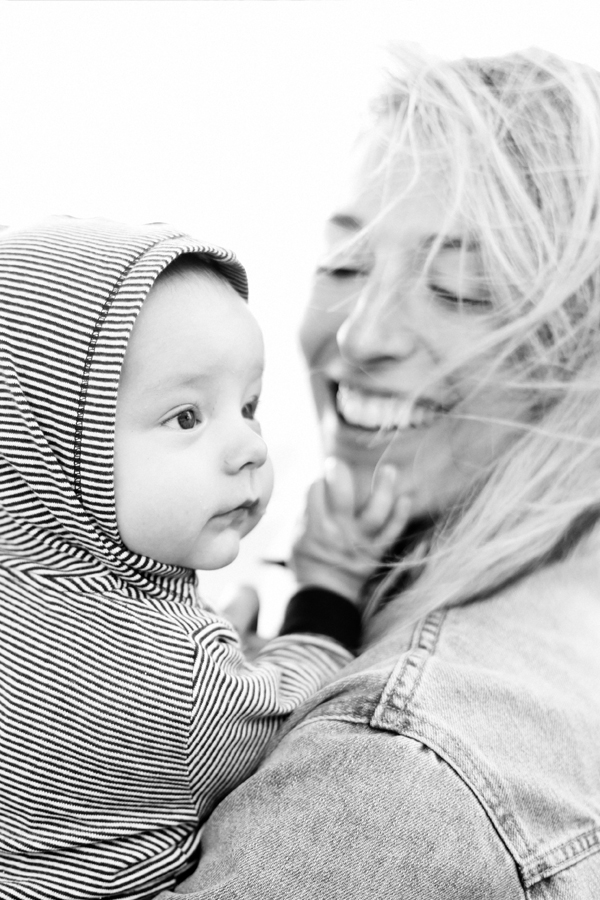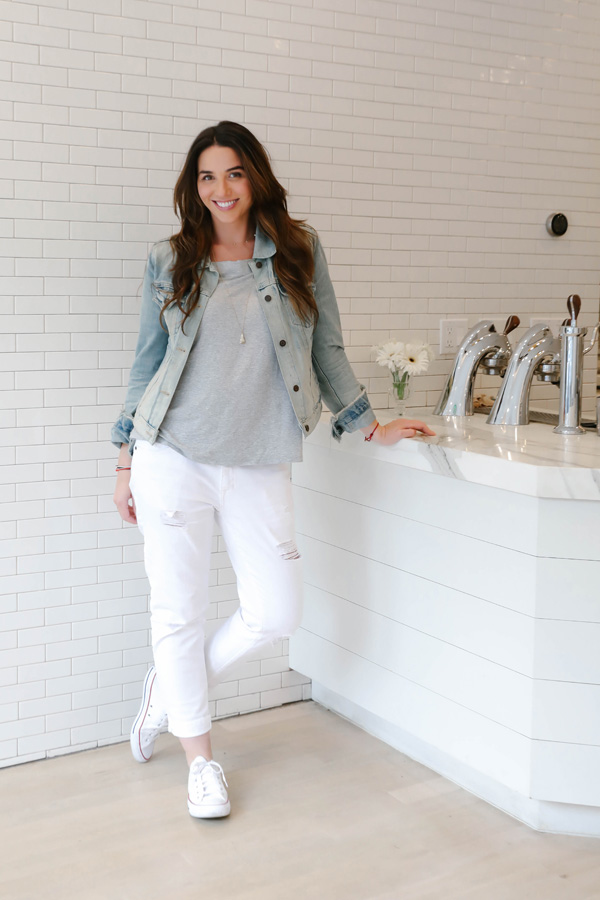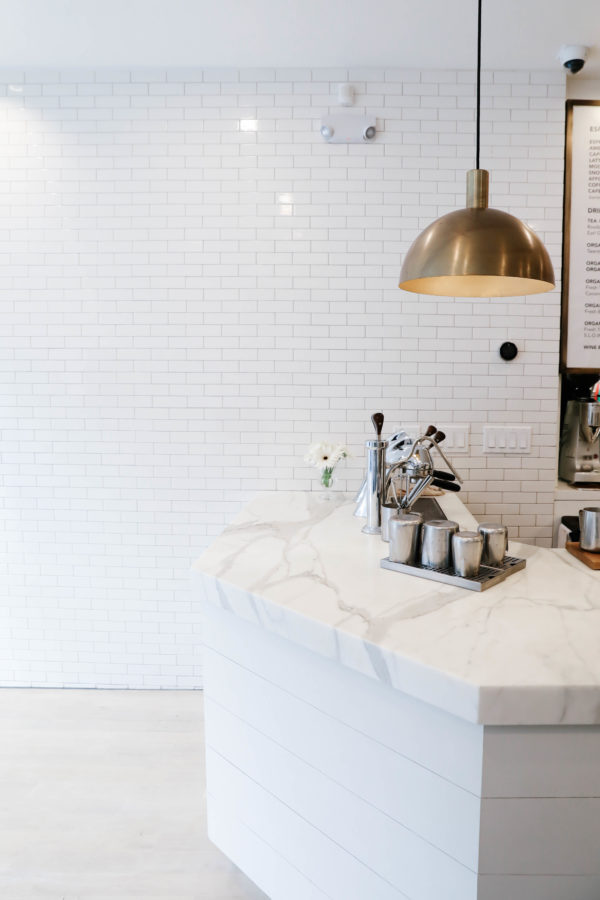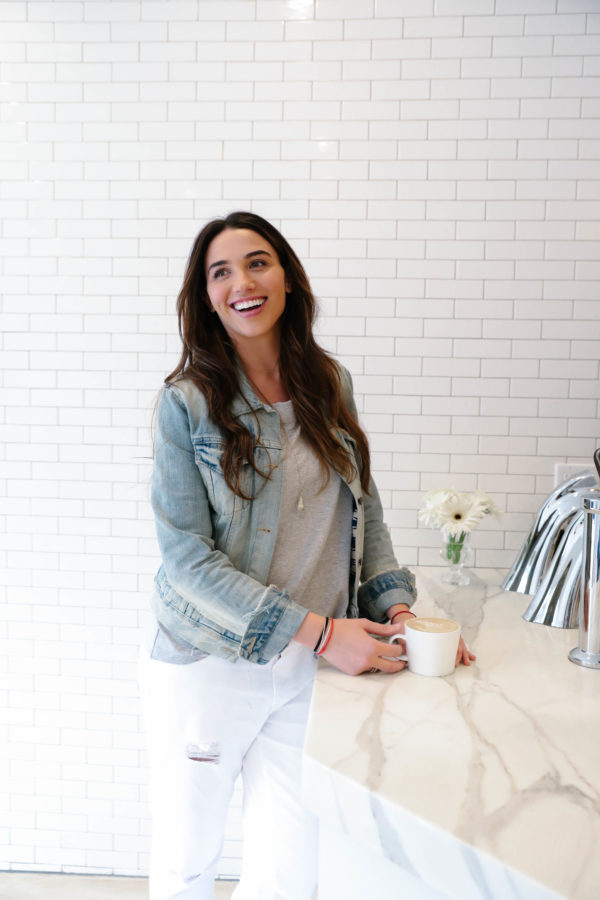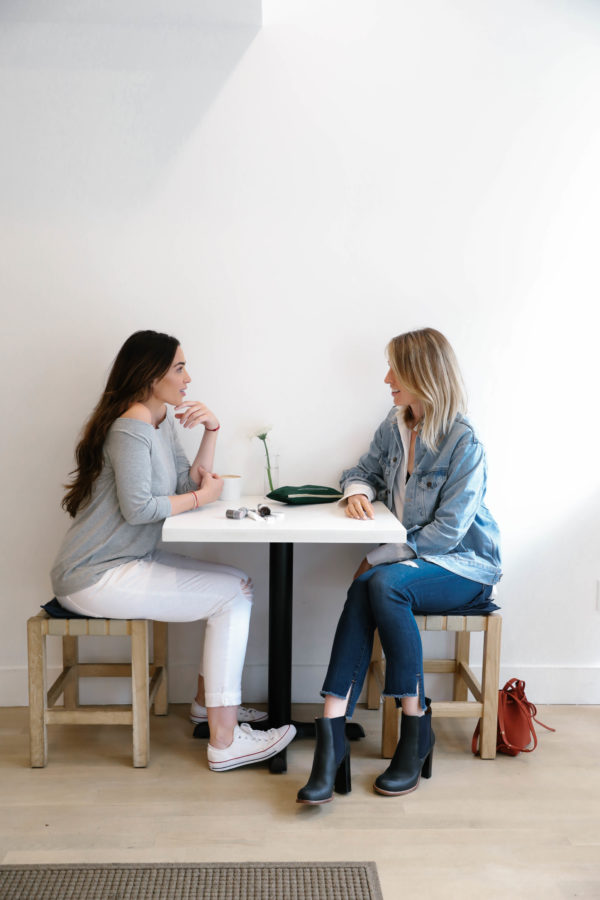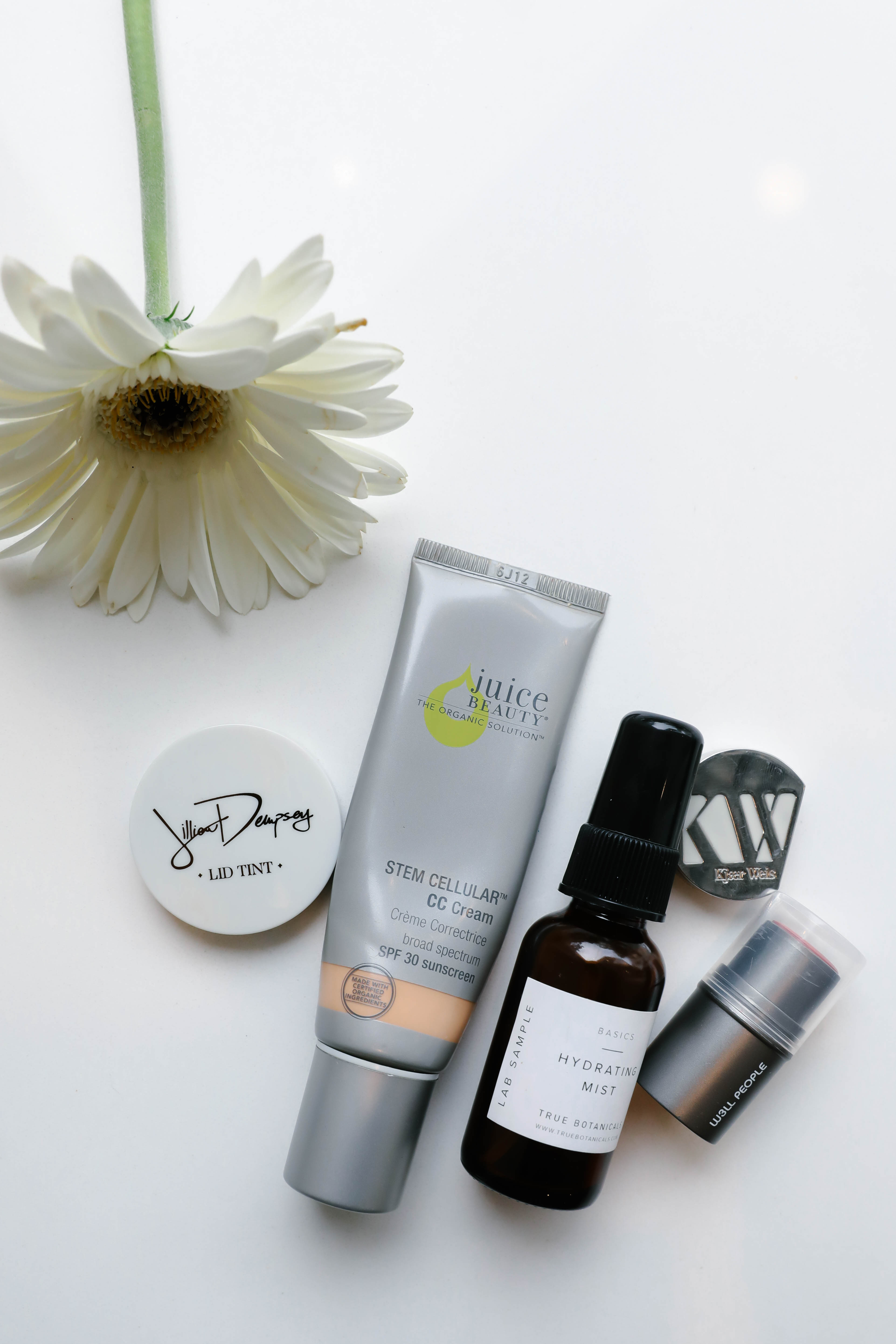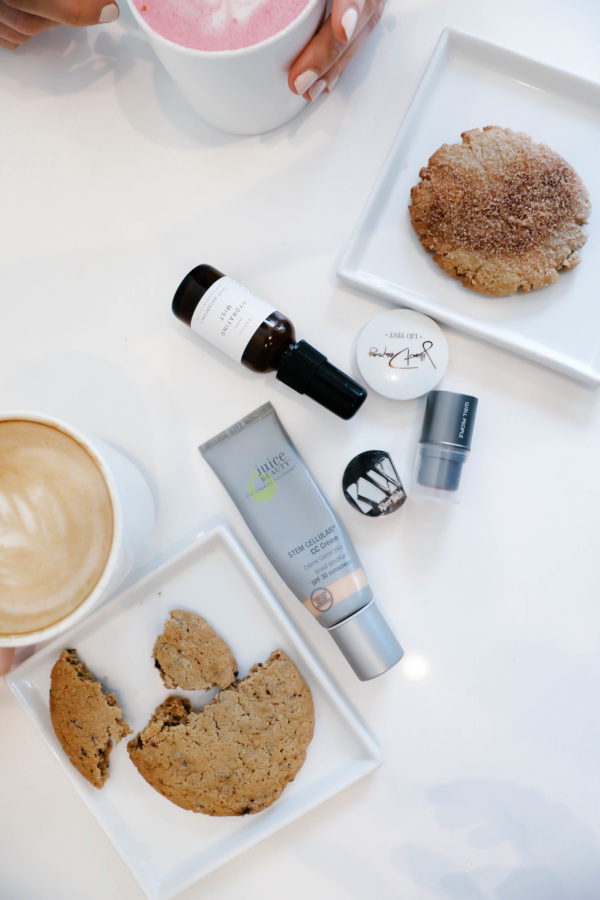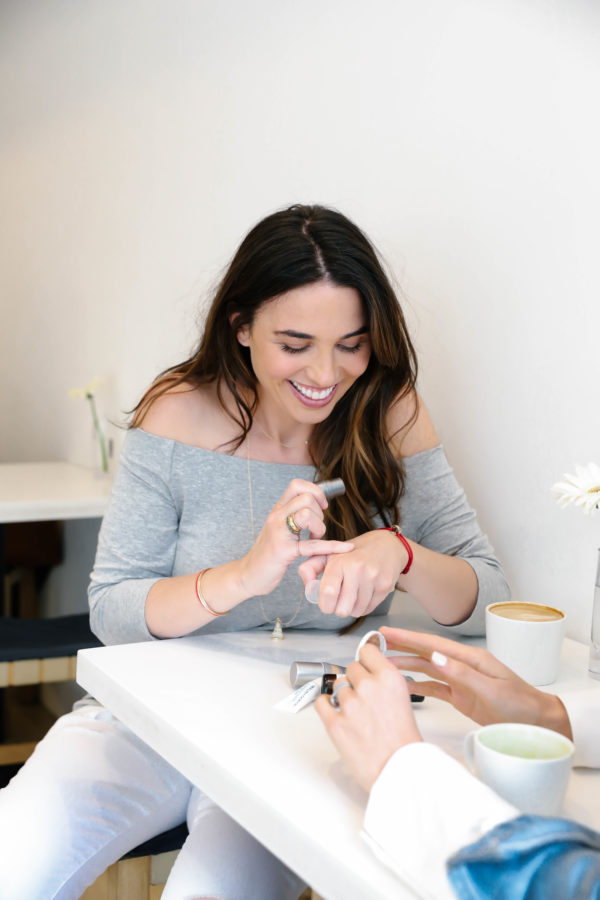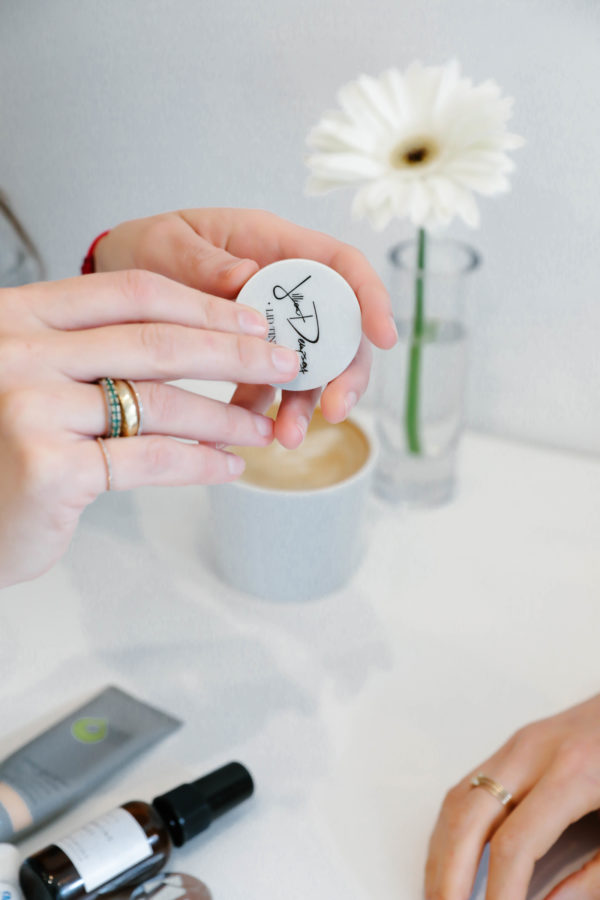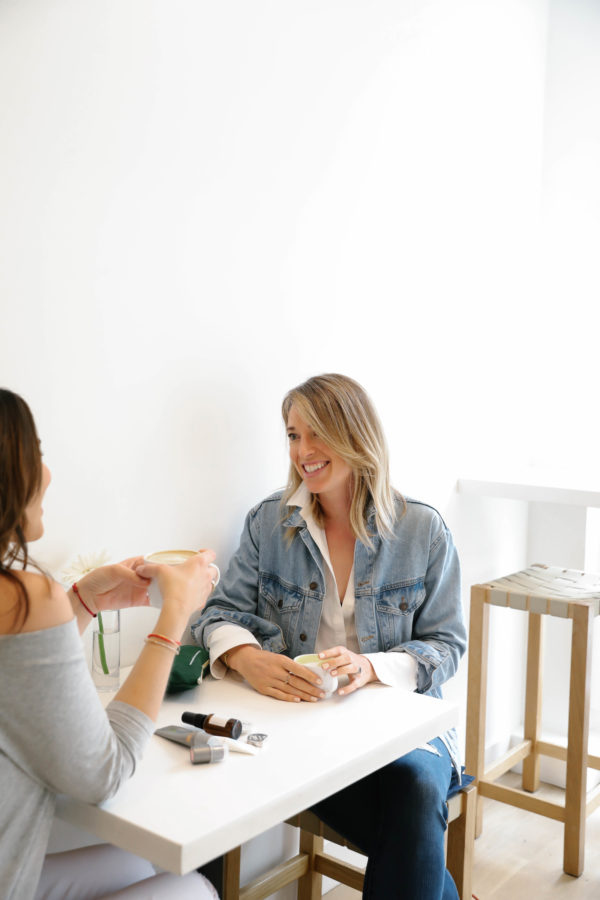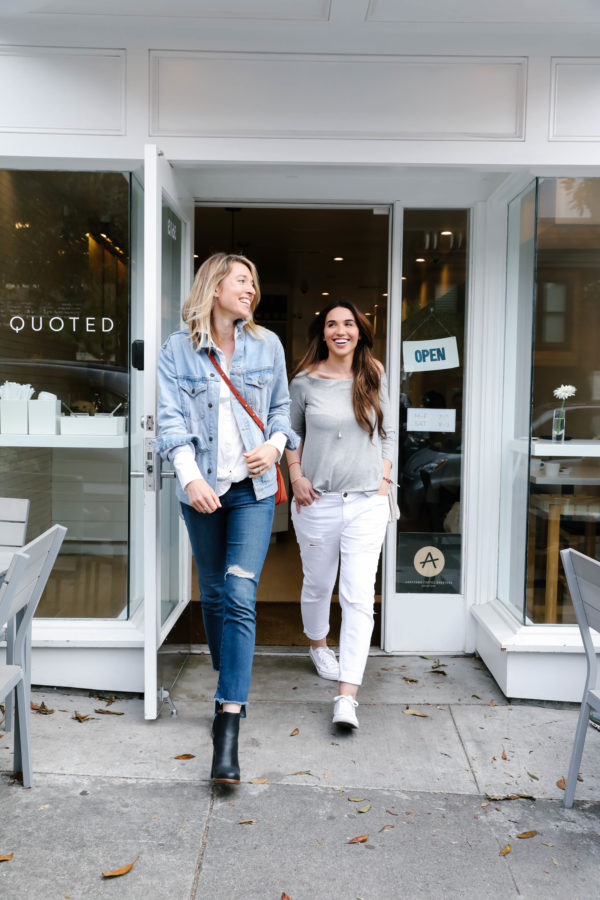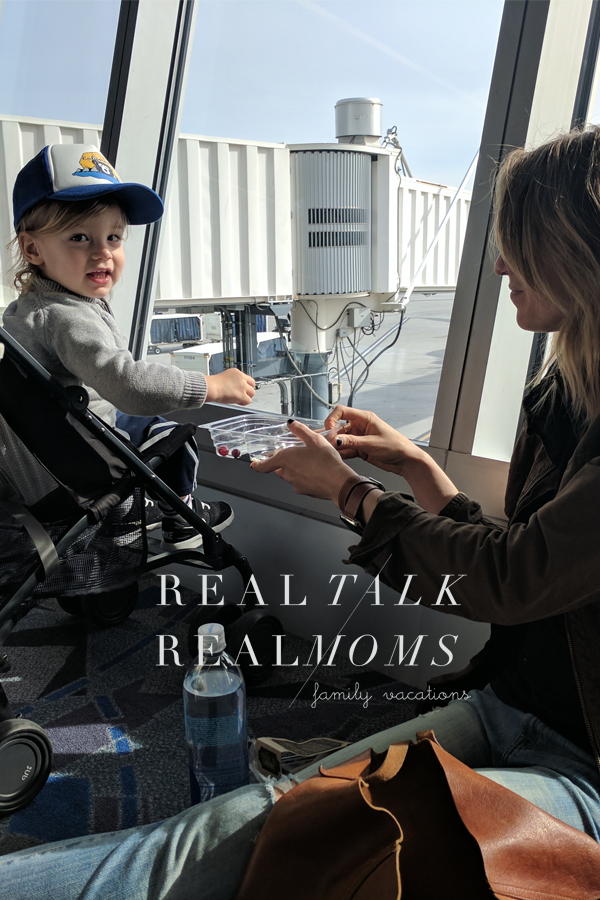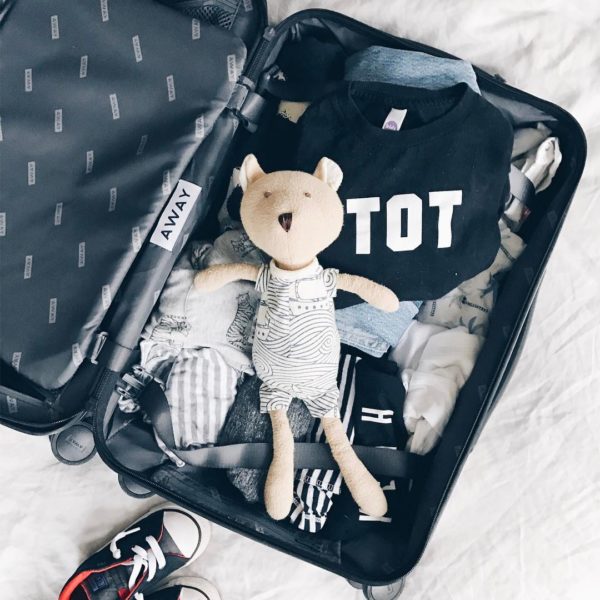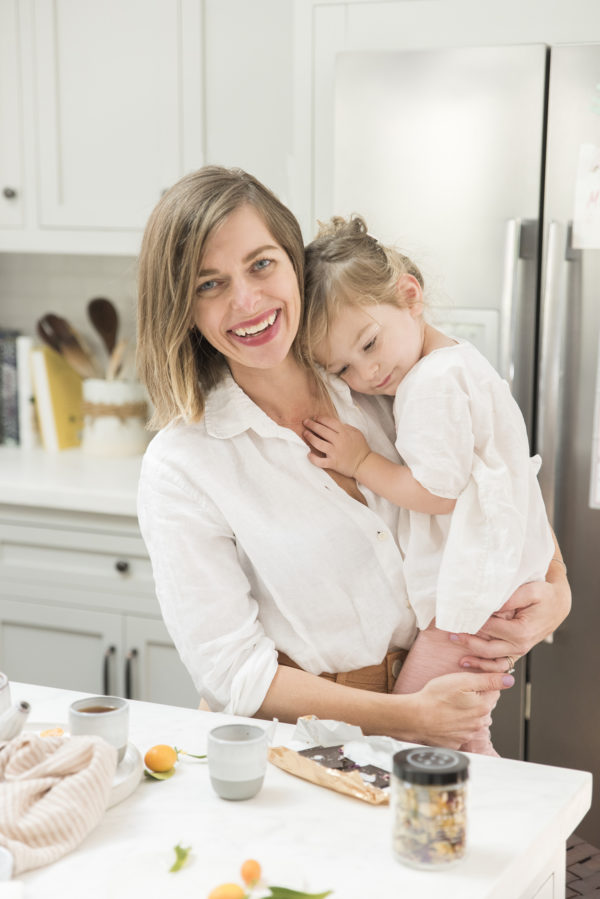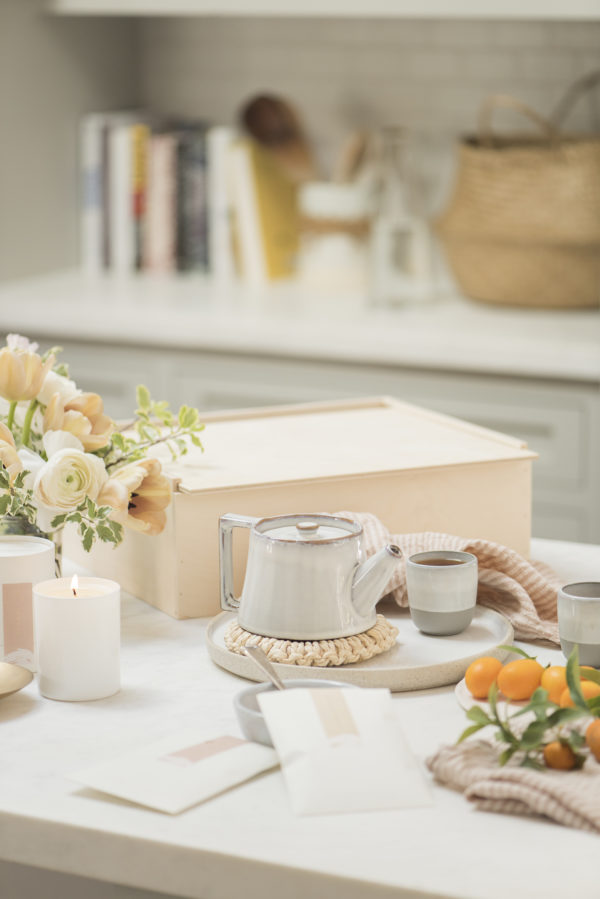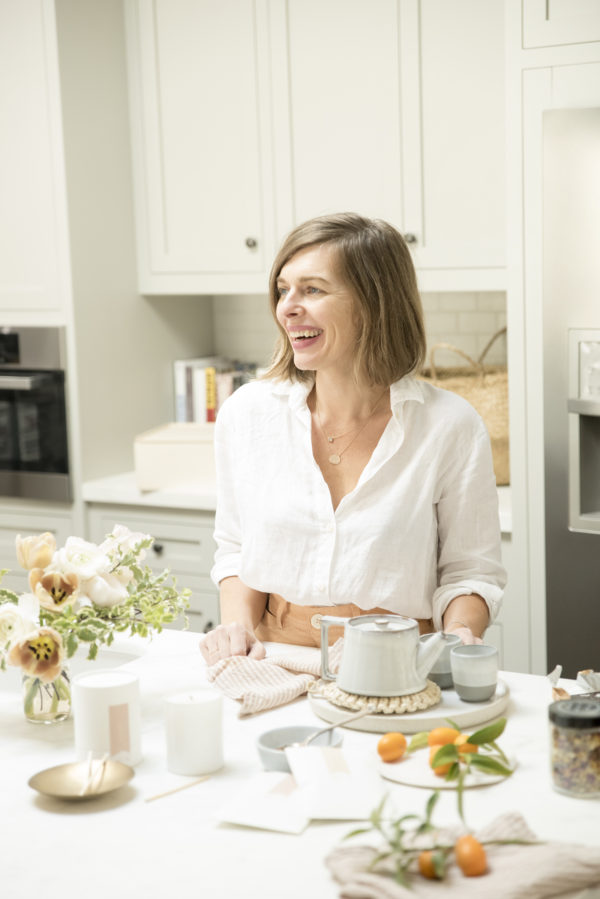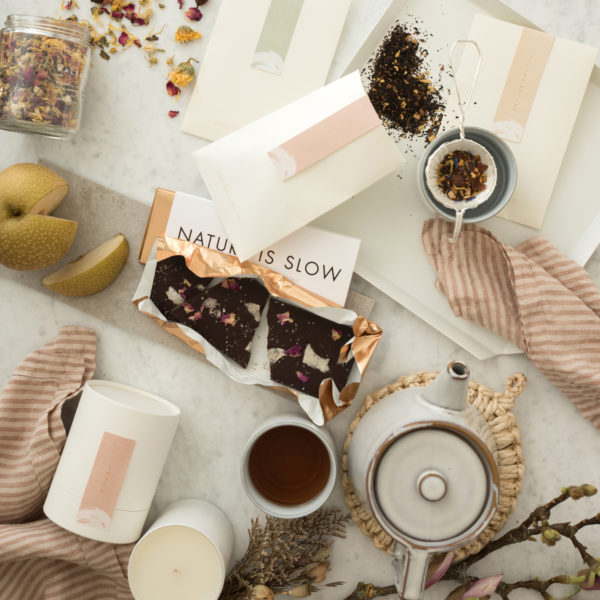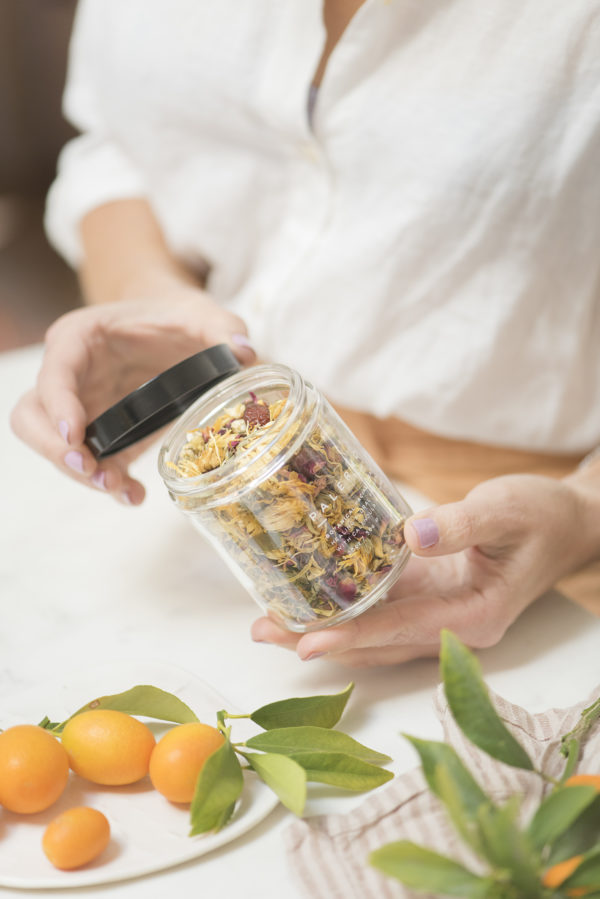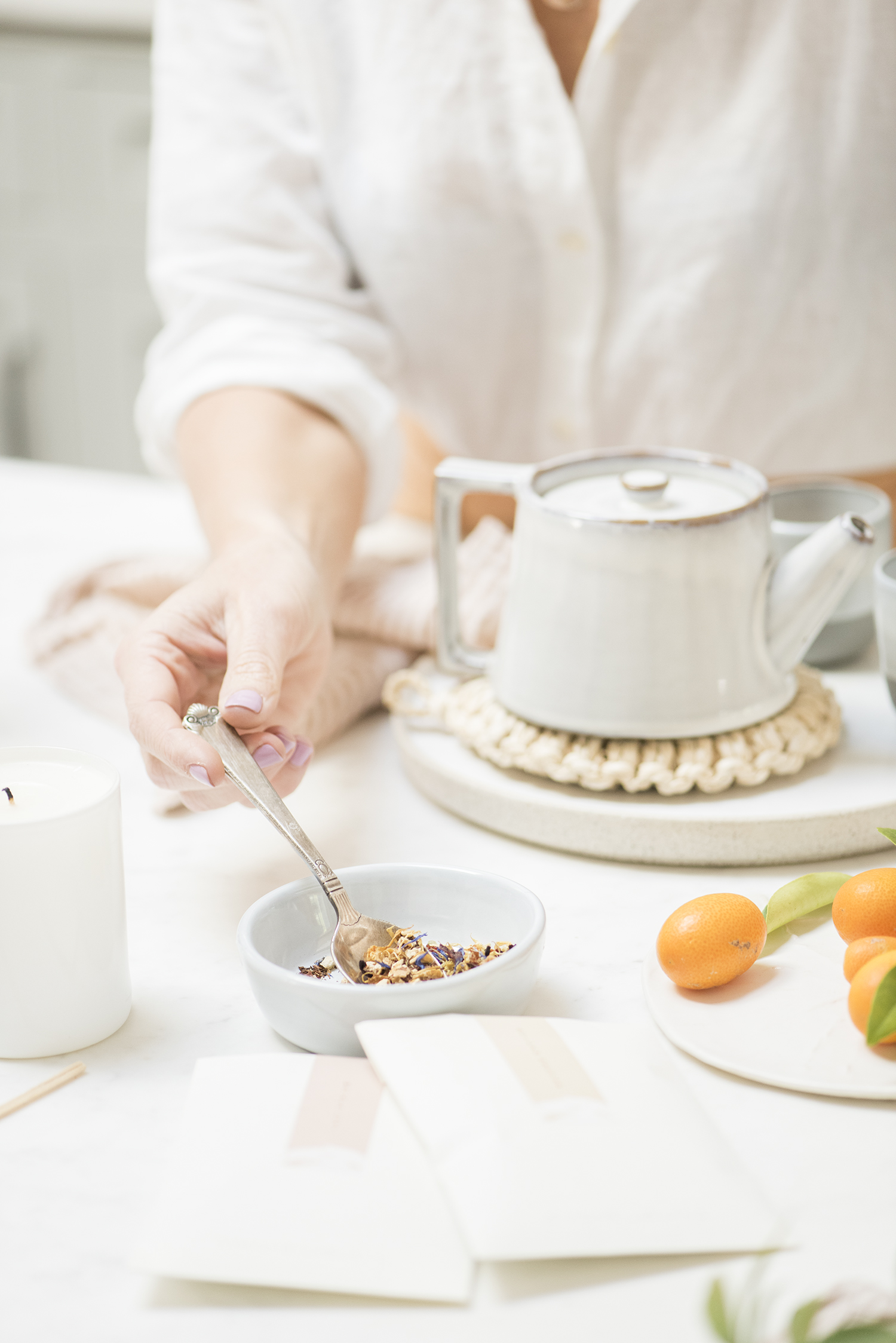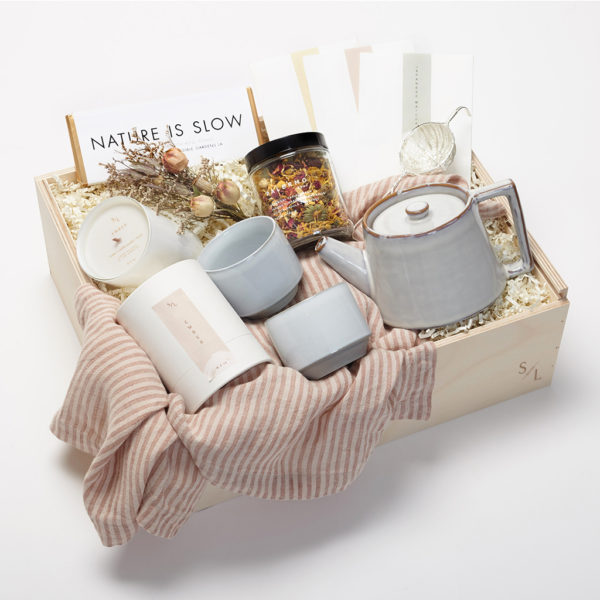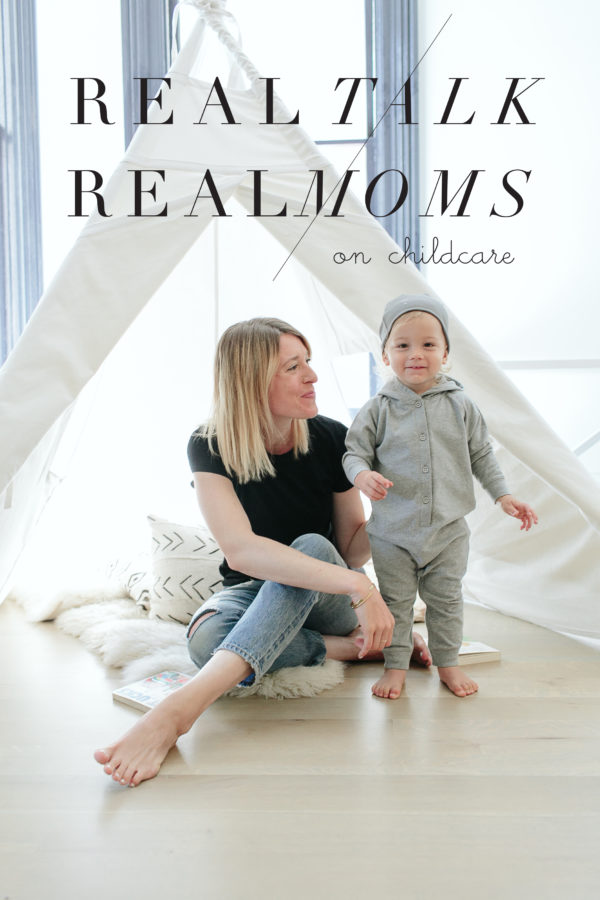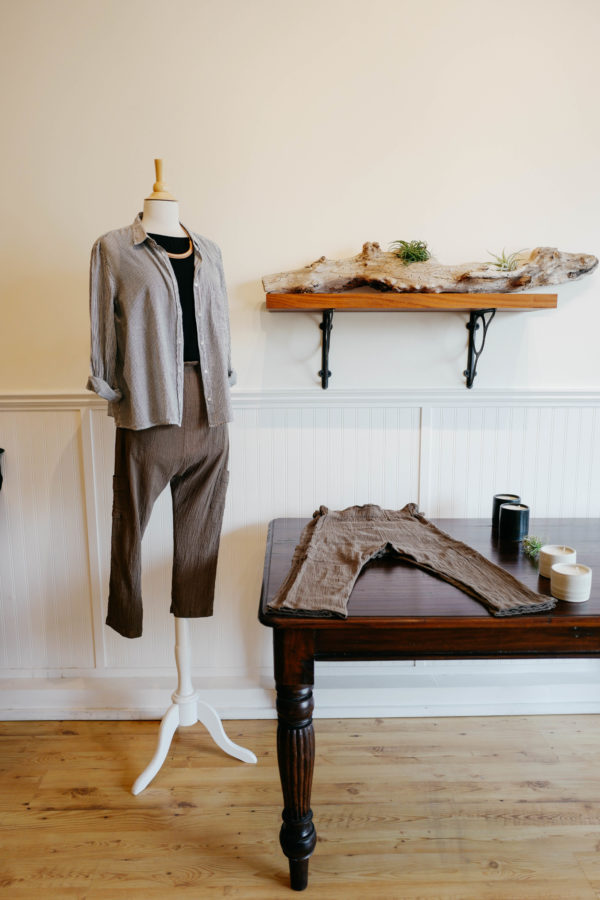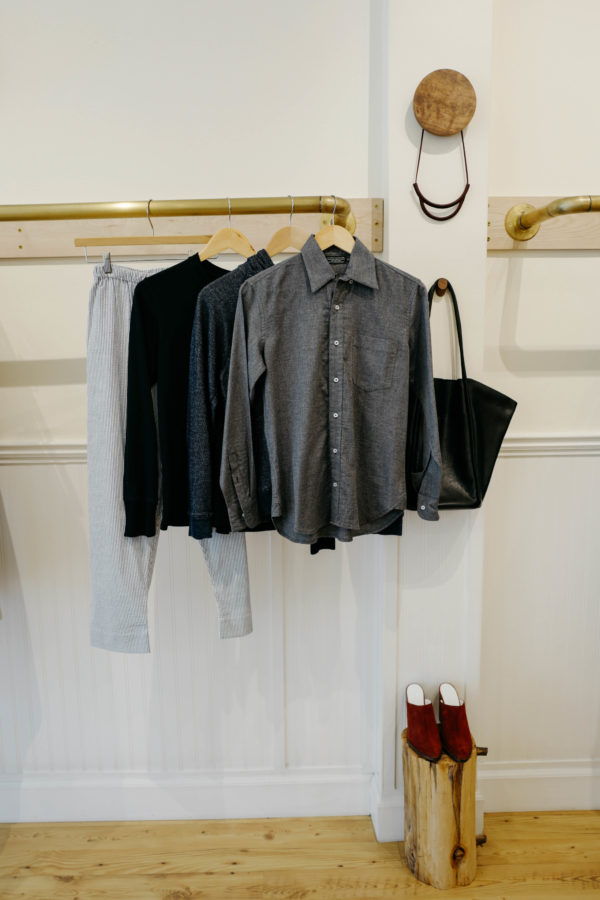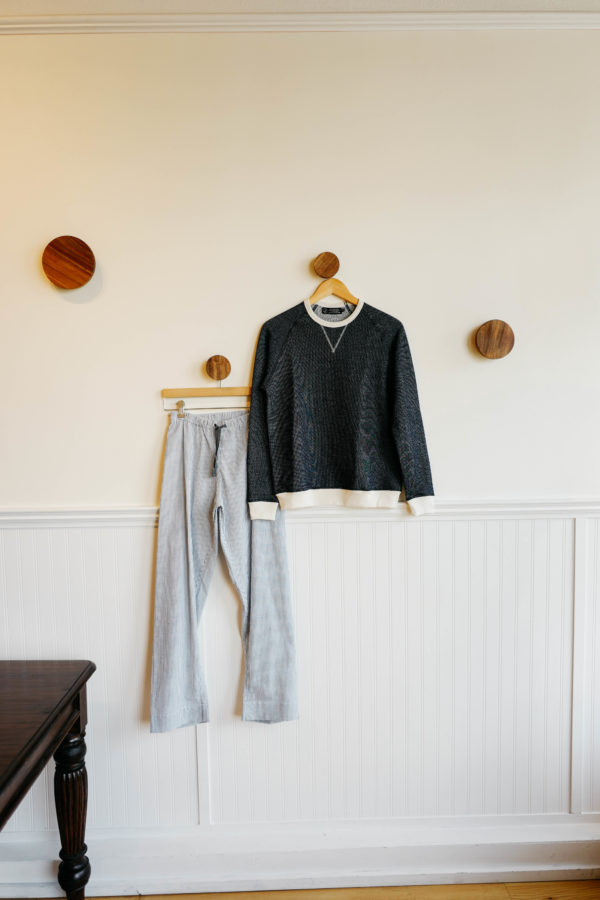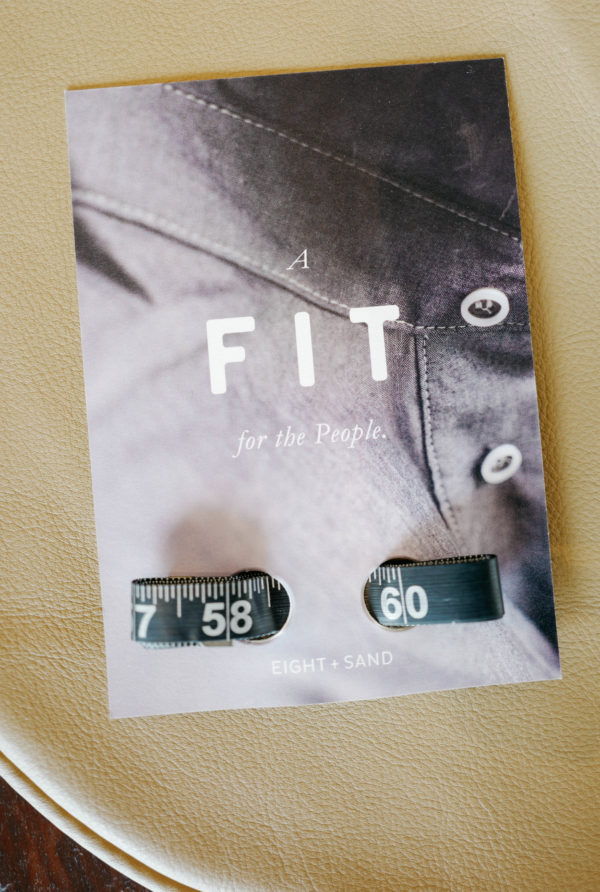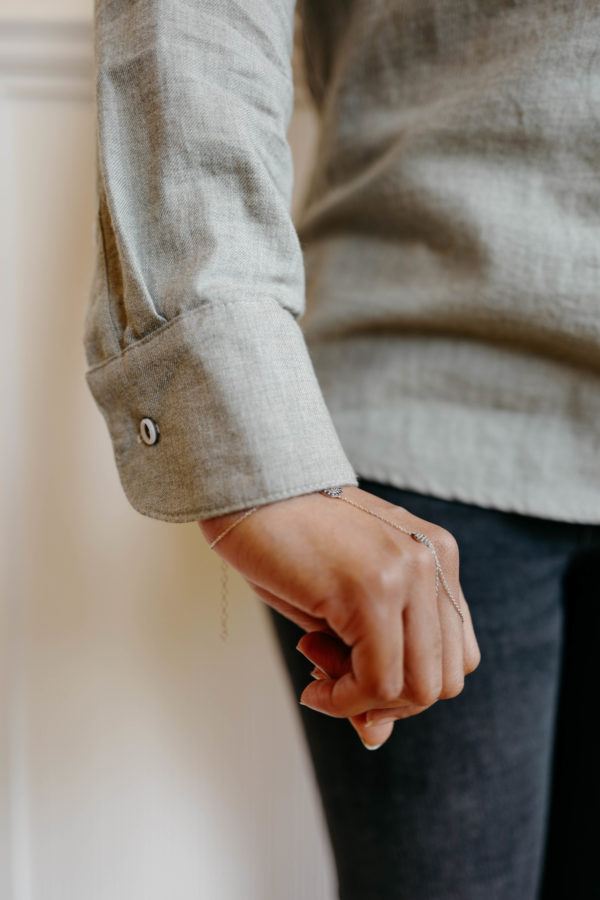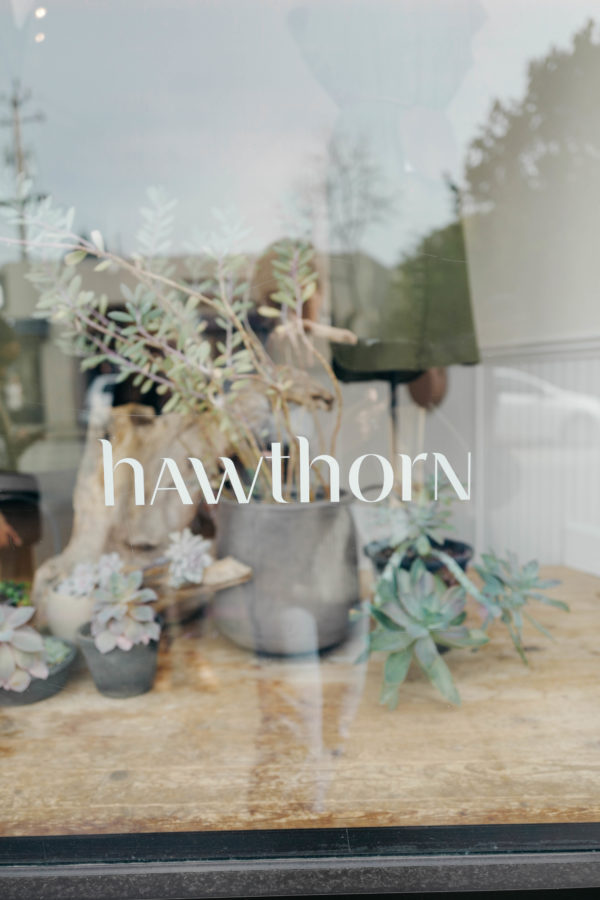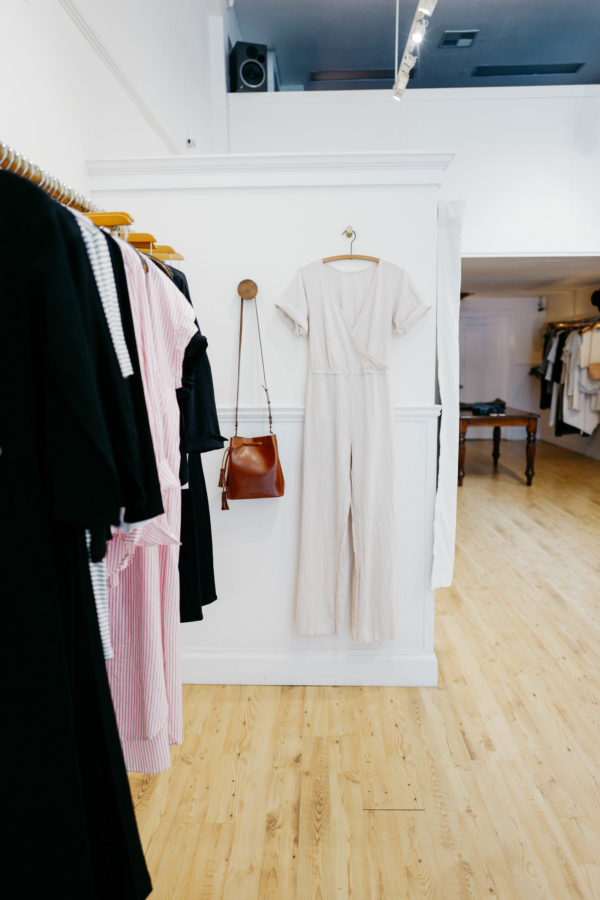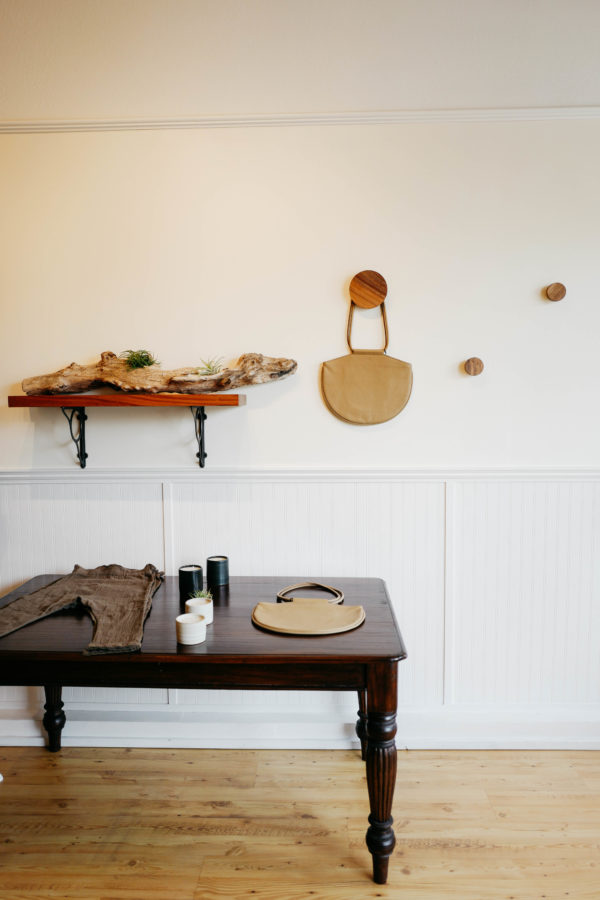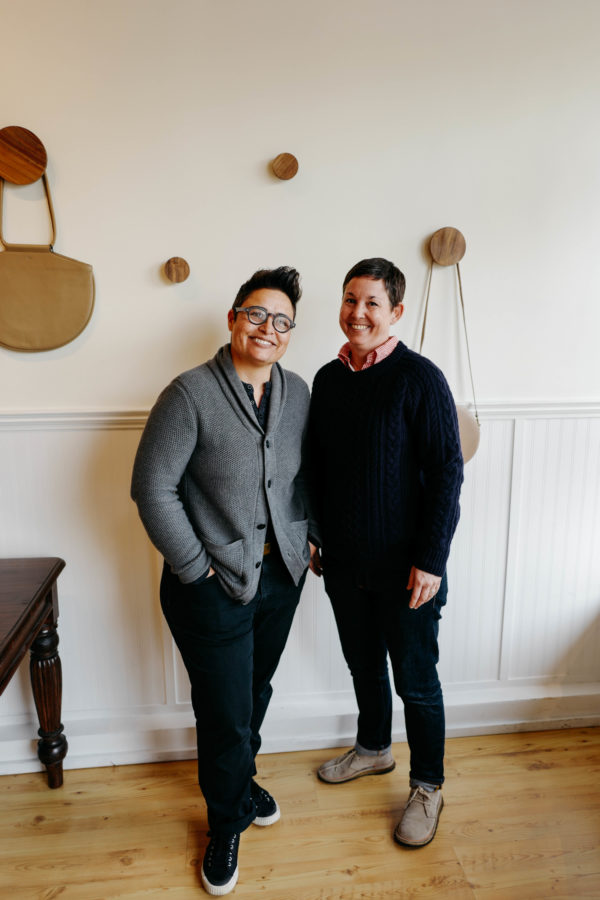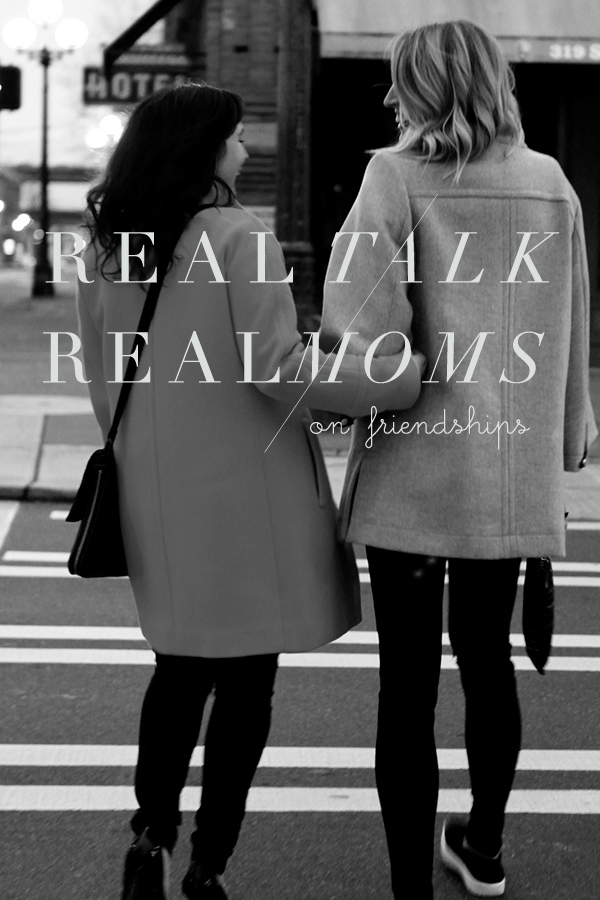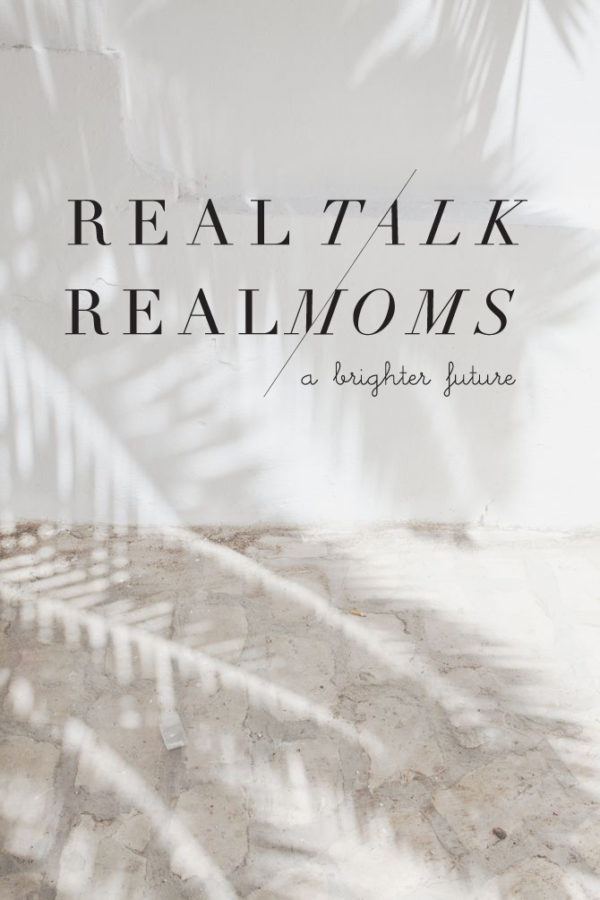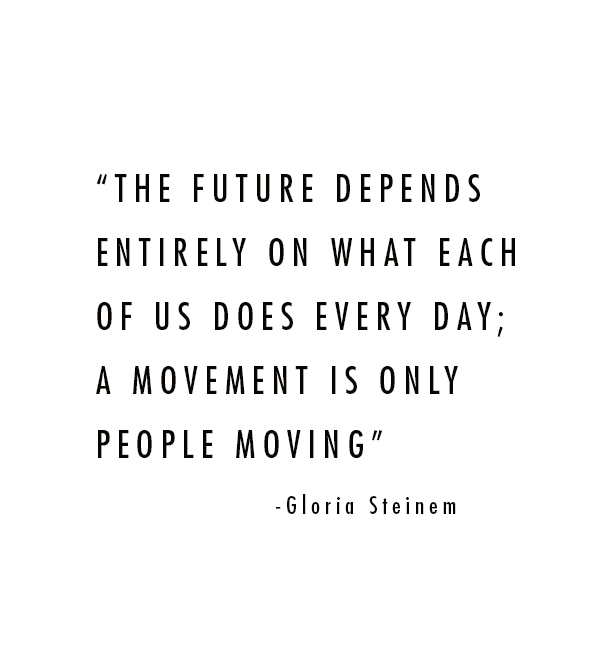Have you ever met someone with whom you just clicked? Like you’d known this person for a long time and that you’ve always been friends? That was certainly how I felt when I sat down with chef, cooking school & cafe owner and now cookbook author Alison Cayne. If you don’t immediately recognize Alison you would most likely recognize her New York City home as it’s one of the most pinned things ever. And it should be – it’s crazy gorgeous. But that’s not what this post is about. While Alison’s style is indeed impeccable, what she’s really famous for is founding Haven’s Kitchen, a cooking school, event space and cafe in the heart of Manhattan.
Recently, I had the pleasure of enjoying lunch with Ali at one of my favorite San Francisco haunts, and I can’t decide what amazed me more: the fact that she has five kids, that she got into food and started her business with no formal training or that she did it all after 40?! I think I need to go with D) all of the above because Ali’s journey to becoming a cooking maven is both nontraditional and truly awesome. Vogue describes her as a Nancy Meyers movie character come to life after all. We were also twinning on the day we met – if that isn’t a meet cute, I don’t know what is.
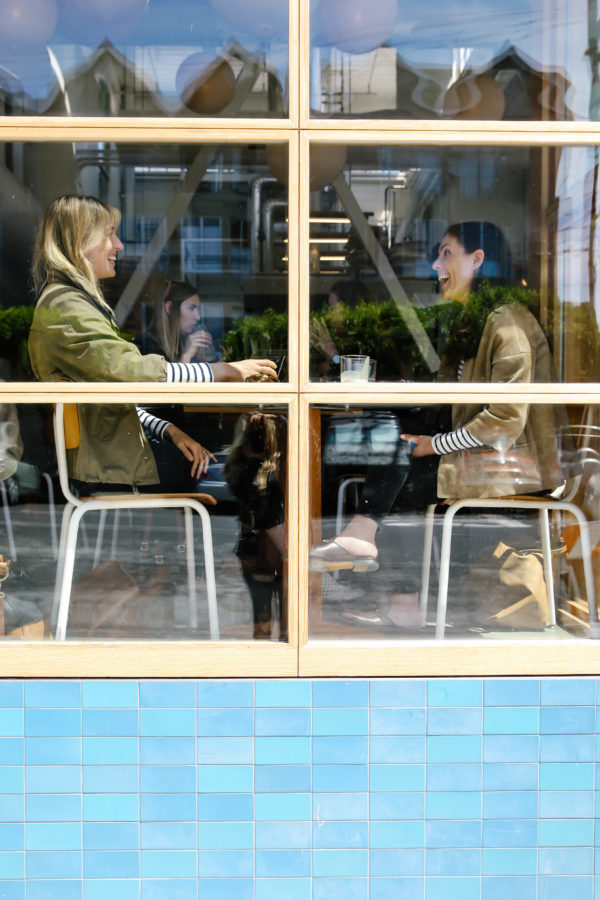
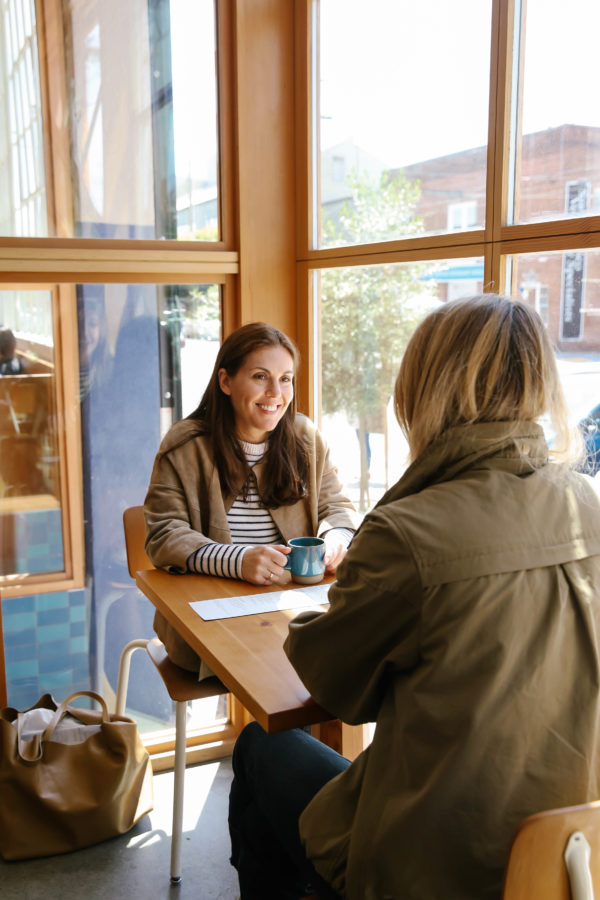
Ali’s path to becoming a chef, business owner and now cookbook author it truly unique. Ali is by all intents and purposes, a home cook. As she explained to me, she always loved cooking and food but never considered it a career. She just cooked, at first for her kids and then for friends, and then as lessons for fellow stay-at-home moms as her children (I mentioned five right?!) headed into their school-age years. That’s when Ali realized she wasn’t only passionate about food but food systems, sustainability and how that all connects to food culture. She realized that where food comes from, how we prepare it and then how we consume it is really a linchpin of human connection. I know, heady stuff.
So Alison decided to go back to school, earning a Master’s Degree in Food Studies from NYU (impressed yet)? She also began working for the Union Square Farmer’s Market (initially as an intern! it’s never too late my friends) running their cooking demonstrations – and meeting tons of local food purveyors in the New York area along the way. But what really inspired me about Ali’s approach to food is her focus on a mission – creating meaningful connections through cooking and eating. Even though farm to table food is now trendy and we all obsessively watch Mind of Chef and Chef’s Table (at least I do!), Ali wanted to take these high-minded concepts and make them accessible to regular folk who likely shop in grocery stores, not idyllic farmer’s markets, who have 20 minutes to make dinner for a hungry hoard every night and who have probably never been taught a proper cooking skill or what celeriac is. Ali realized she wanted to teach others, both about the connection between earth, food and culture, but also how to feel confident cooking yummy stuff. And that’s where Haven’s Kitchen was born.
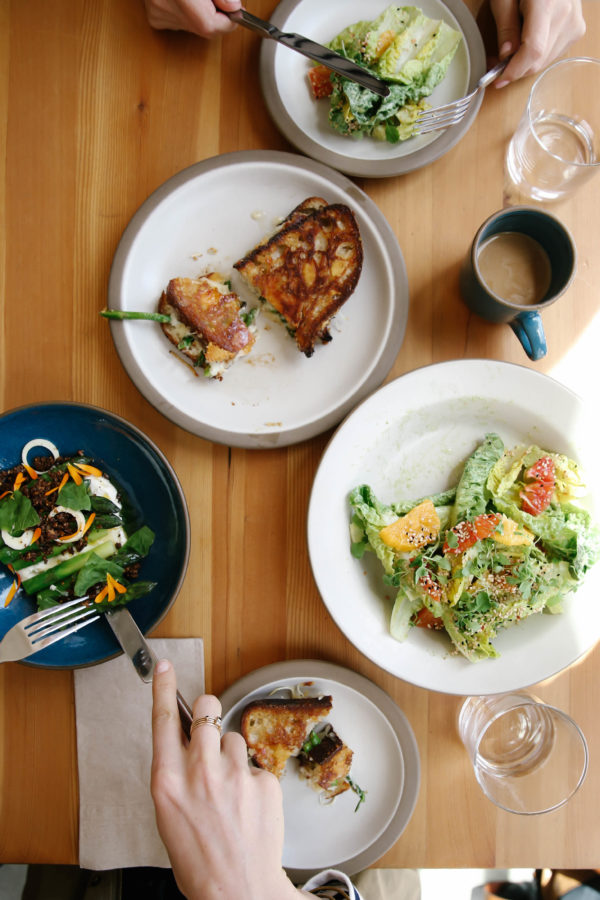
But not everyone is lucky enough to take a class, attend an event or stop in and enjoy a bite at Haven’s Kitchen. Hence “The Haven’s Kitchen Cooking School” book. More than a traditional book of recipes, Ali set out to make a manual that will help novice cooks feel confident in the kitchen. Because she explains, “my goal building Haven’s Kitchen was to create a cooking school for recreation: for home cooks and people who just wanted to make enjoyable food. Every decision we make comes back to the idea that the kitchen should be a safe, happy, creative place—a haven – not threatening or intimidating, not some far removed, sterile space of Instagrammable perfection. I think the cookbook takes our approach and philosophy and translates it into book form as best as we could.” She went on to explain how those years of teaching cooking to her friends helped her realize that when you’re confident about doing something, you’re likely to do it more often. And if people were to cook at home more often it helps build familial bonds, community connection and is easier on our environment. Win, win win. I love where Ali’s head is at.
Cooking School includes everything from a primer on knife skills to shopping lists for both your pantry and your kitchen appliance closet. The book is then organized around food types, from grains & beans to eggs, salads and sauces. Each chapter not only offers recipes relevant to its assigned category but also includes secrets to key cooking techniques like how to get the proper braise or how to perfectly poach an egg (still a mystery to me!). It helps that Cooking School is also filled with beautiful pictures of mouth-watering dishes – a prerequisite for any cookbook that takes pride of place on my cookbook shelves – but I love that this book goes further than most. When you head to the chapter about fish, you can learn details about the ingredient (like what to look out for when buying fish), the necessary cooking tools (what to use to filet a fish) and culinary tips & tricks like taking fish out of the refrigerator 15-30 minutes before cooking to optimize flavors. It’s these tidbits that will help transform you from a recipe follower to an actual cook – someone who knows and understands details about preparing food.
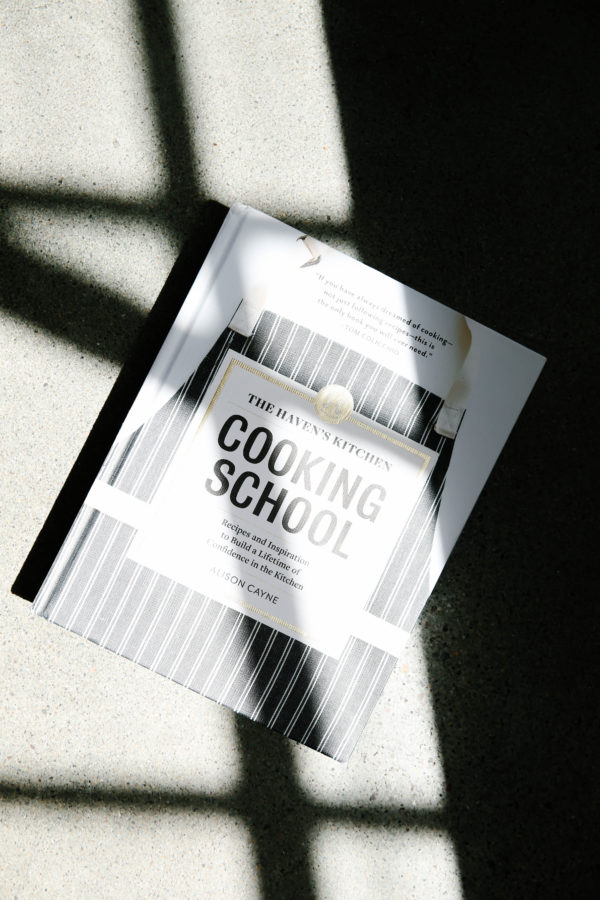
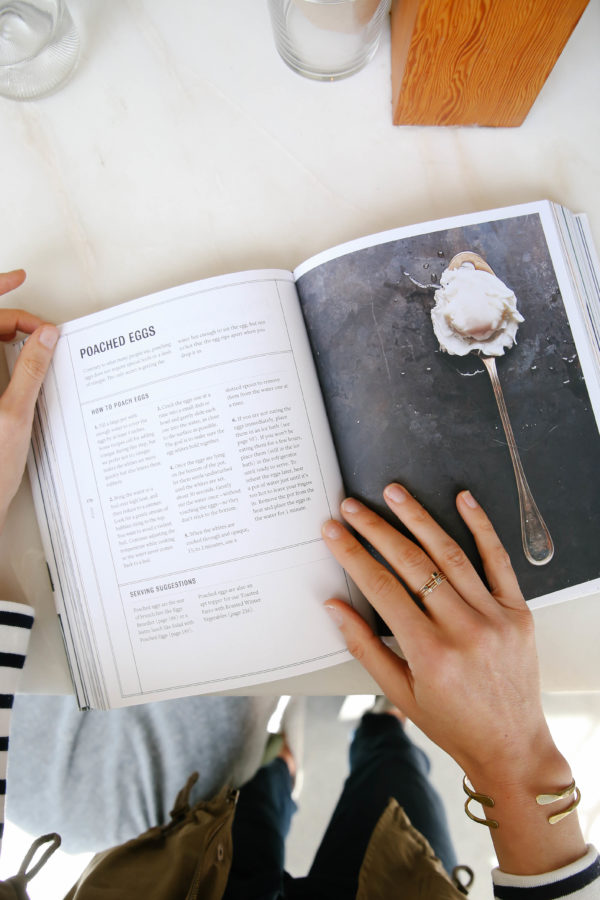
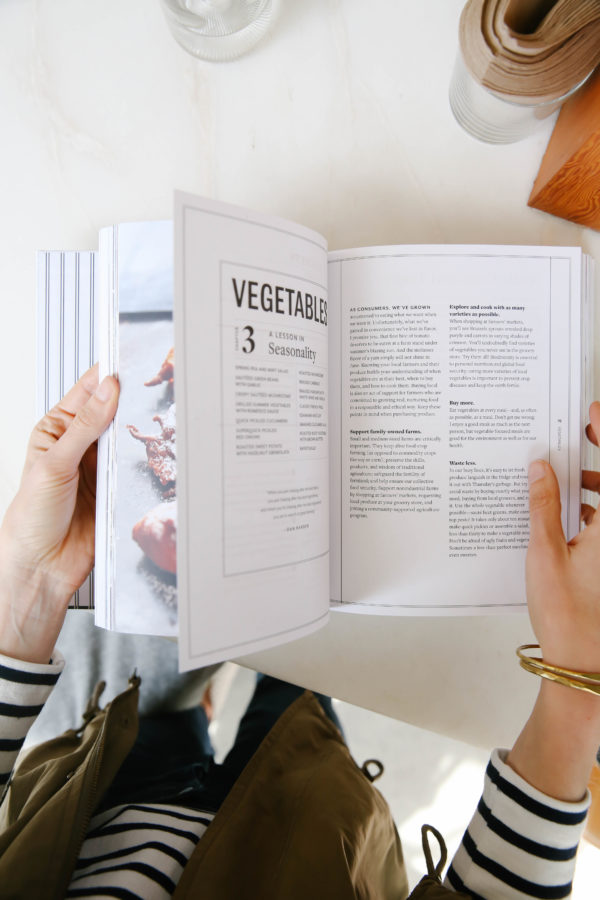
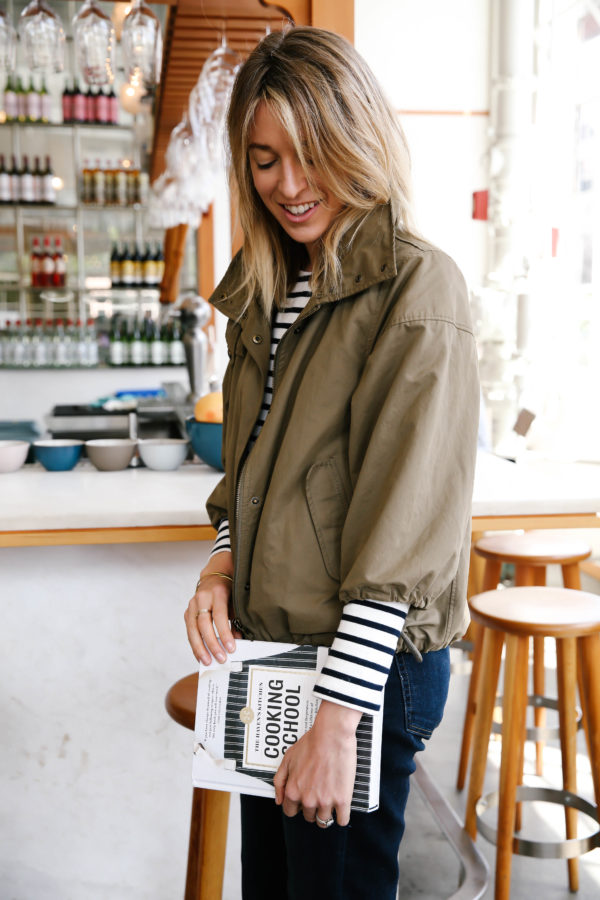
Now Ali cautions, you’re not going to read her book, or any for that matter, and become a master chef overnight. As with anything worthwhile in life, building cooking skills takes time and practice. Ali shares this anecdote to explain:
“I’ll give an example: Tonight I’m having ten people for dinner. I have two vegetarians and a few big meat eaters. It’s January so my vegetable choices are mostly root vegetables and winter greens. I’ve had a four of the guests before so I need to cook something new for them. That puzzle might sound overwhelming to some, but I am confident that I can prepare a few hearty vegetable and grain dishes, roast chickens, toss a gorgeous salad and prepare a sauce or two for drizzling that will work on any or all of it. That confidence, knowing that I have the skills and know-how to make those components of the meal without relying on recipes and that I can get it done in two-three hours is what I hope our readers will eventually accomplish. That way, instead of being stressed about hosting a dinner, I am actually looking forward to the time I get to spend with my friends.”
And isn’t that time better spent that on Snapchat, Twitter or the latest drama on Bravo?? As my kiddo gets older and I start really thinking about things I want to pass down to him, a love of food and cooking is definitely one. In our fast-everything society, where the entire world’s variety of cuisine can be delivered to your door in a matter of minutes, it can be so easy to forget how foundational food is to culture. And to our environment. And to the vitality of our communities.
While I love Ali’s approach to food, I didn’t walk away from our conversation inspired to cook. I walked away feeling inspired as a woman, a mother, and an entrepreneur. Ali is a study of taking the time to discover your passion, invest in it with the full expression of your being and then see that passion through to a place that has real, tangible impact on the world. Her story reminds us that this isn’t something you have figured out when you graduate from college. Or turn 30. Or at any number of other major life milestones. For some it might be a never-ending quest. Could you describe your work in mission form? What impact are you hoping to leave on the people you interact with? Knowing that offers such a profound sense of purpose.
I’m going to ponder my mission tonight over a lovely home-cooked dinner. Like this beautiful Garbanzo Feta Salad!
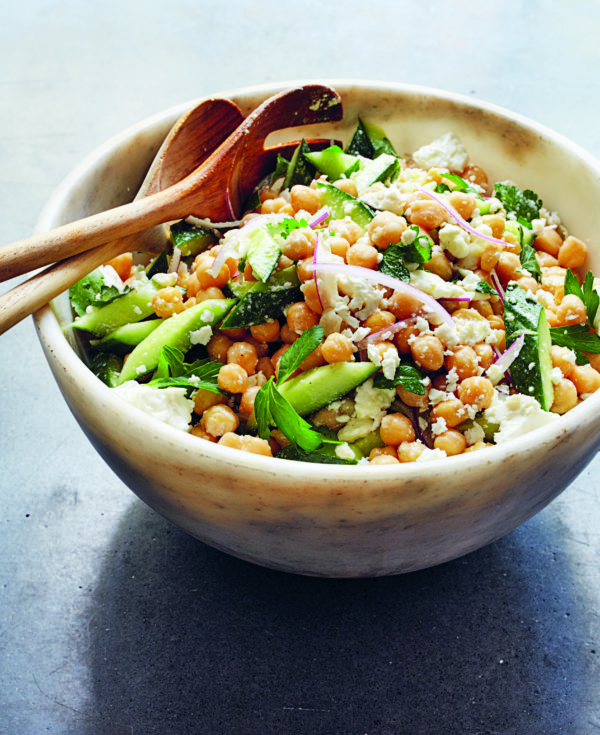
Garbanzo Feta Salad
Serves 4 to 6
1 cup dried garbanzos, soaked for 8 hours, or one 15-ounce can, drained and rinsed
Fine sea salt
Citrus Vinaigrette (see below)
1 small red onion, thinly sliced and held in ice water
2 Persian cucumbers or 1 small
English cucumber, sliced ¼ inch thick on the bias
¼ cup crumbled feta
¼ cup torn fresh flat-leaf parsley
If using dried beans, after soaking, rinse the garbanzos, place in a medium saucepan, and cover with double their volume of water. Bring to a boil, reduce to a simmer, and cook until the beans are tender but hold their shape, about 45 minutes. Remove from the heat, add a large pinch or two of salt, and let sit for 15 minutes. Drain and put in a large serving bowl.
While the garbanzos are cooking, make the vinaigrette.
Drain the red onion and add to the garbanzos. Add the cucumber, feta, and parsley, drizzle on about ¼ cup of the vinaigrette, and toss to combine. Add more dressing and salt to taste. Serve at room temperature or chilled.
Citrus Vinaigrette
Makes about 2 cups
1 cup mixed citrus juice, plus the grated zest of 1 lemon
1 tablespoon Dijon mustard
Fine sea salt and freshly ground black pepper
1 cup extra-virgin olive oil, or more to taste
In a medium bowl, whisk together the juice, zest, mustard, a pinch of salt, and pepper to taste. Slowly whisk in the olive oil until well blended.
Finish with additional salt and pepper as desired.
You can order your copy of Cooking School here
Check out more of my favorite spring recipes, here
Interviews with more crazy inspiring women are right here
original photography for apartment 34 by andrea posadas
Recipe excerpted from The Haven’s Kitchen Cooking School by Alison Cayne (Artisan Books). Copyright © 2017. Photographs by Con Poulos
